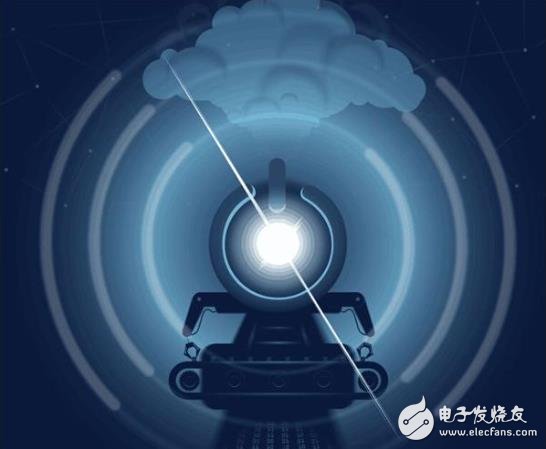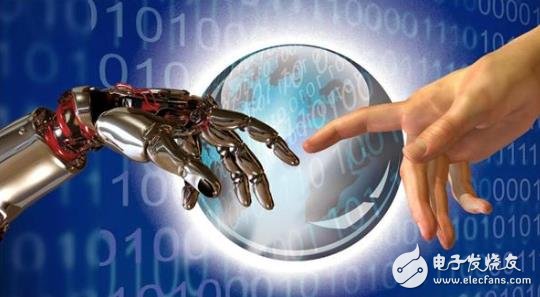With the invention of steam engines and power looms, the world industrialization began in the late 18th century, fundamentally changing the way goods are manufactured. A century later, power and assembly lines have achieved mass production. In the 1970s, with the development of computer-driven automation enabled us to program machines and networks, the third industrial revolution began.

Today, the fourth industrial revolution is changing the economy, employment, and society itself. Under the broad heading of Industry 4.0, many physical and digital technologies combine analytics, artificial intelligence, cognitive technologies, and the Internet of Things (IoT) to create digital businesses that are interconnected and make more informed decisions. Digital businesses can communicate, analyze, and use data to drive intelligent behavior in the physical world. In short, this revolution not only embeds smart connected technologies in the organization, but also embeds our daily lives.
So how are organizations and leaders ready to embrace this revolution?The consulting firm Deloitte surveyed 1,600 C-level executives in 19 countries and explored a core question: how leaders of business and government agencies can leverage the full potential of industry 4.0 for their customers, employees, organizations, and communities. And the benefits of society? The following is the Deloitte report. The fourth industrial revolution is coming. Are you ready? The main findings of the study.
Only 14% of respondents highly believe that their organization is ready to take full advantage of the changes associated with industry 4.0;
A quarter of CXOs surveyed are very confident that they have the right mix of employees and skills, although 84% said they are doing everything they can to create a labor force for industry 4.0.
The vast majority of CXOs (87%) believe that industry 4.0 will bring more equality and stability, and three-quarters of people believe that business will be more influential than government and other entities in shaping the future;
However, less than a quarter of respondents believe that their own organizations have a strong influence on key factors such as education, sustainable development and social mobility.
Deloitte's research found that while CXO sees new business or delivery models as the biggest threat to its organization, they primarily use Industrial 4.0 technology as a more efficient and cost-effective tool for existing businesses. This leaves a huge opportunity for innovative business models that not only bring value to both direct and indirect stakeholders, but also better protect them from damage.

How do executives manage this change? Given its integration of digital and physical technologies in various fields of commerce, production, mobility and communications, the fourth industrial revolution represents a broad and universal shift that should be fully addressed if companies are to thrive. When dealing with such a big deal, it is useful to study how it affects specific elements. Deloitte focuses on four areas:
society
Executives seem to be fearless in their technology, as a big balancer that can provide more education, work or financing channels between different regions and social groups. And most executives believe that companies (the public (74%) and private (67%)) have the greatest impact on how industry 4.0 will affect society, while the government is in second place. However, many executives do not consider their own businesses to account for a large percentage of issues such as education and employee learning, environmental sustainability, social and geographic mobility. Millennials believe that multinational companies are not fully aware of their potential to alleviate the biggest challenges of society. If business really plays a leading role in the broad social impact of industry 4.0, companies should embrace transformative change before it may be too late.
strategy
Even if leaders recognize the expected changes in industry 4.0, many still focus on traditional near-term business operations, rather than long-term opportunities to create value for their direct and indirect stakeholders. Deloitte found that 57% of CXO respondents ranked business products as a top priority and increased productivity to 56%. While these issues are well aligned with some of the elements of Industry 4.0, they are still traditional goals, ranging from continuous learning to tapping new sources of talent to reaching underserved markets, providing predictive tools to help improve processes. Reduce risk, connect to the supply chain, achieve a more flexible system, and more.
Talent
Many executives do not seem to feel the urgency of meeting future labor challenges, although only a quarter of executives are convinced that they have the right mix of employees and the skills they need in the future. Deloitte's findings can explain that most executives believe they are doing what they can, they can rely on the existing education system, and their existing employees can be retrained. In short, they are worried, but they don't think that fundamental changes are necessary, and ultimately let them get where they need to be. Although technology has created more job opportunities than destruction in history, these newly created jobs should be encouraged by effective workforce development.
technology
The fourth industrial revolution brought together the promise of integrating digital and physical technologies that enhance organizational operations, productivity, growth and innovation. However, we have not used digital technology to do what they have done before, just faster and better, and we have found that real industry 4.0 companies use them to create new business models. Companies that expand their use of Industrial 4.0 technology, including suppliers, customers, workers, partners, and others in other ecosystems, can discover the benefits of more change. So what about the problem? Of the CXOs surveyed by Deloitte, only 20% believe their organizations are highly prepared to handle new business or delivery models, and less than 15% believe they are fully prepared for smart and autonomous technology.
All revolutions are destructive, and industry 4.0 is no exception. It brings risks, but offers tremendous opportunities: new products and services, ways to better serve customers, new jobs and new business models. As with the previous industrial revolution, the impact of these changes may affect industries, businesses, and communities, affecting not only the way we work, but also our lives and relationships.
Deloitte's survey shows that CXO understands that they know that industry 4.0 will make a huge difference and they need to be prepared. However, they are not sure how to take action, and there is not much time: in this unprecedented era of global social and economic connectivity, the fourth industrial revolution is happening rapidly, big or small. If leaders choose to think more broadly and take decisive action, their companies may play a leading role in becoming a positive force in industry 4.0.
"BANG" is a brand of disposable vaping products and e-liquids that is sold in lots of countries.BANG's vape products are available from 600puffs to 8000 puffs, with various colors. We wholesale this brand, and you can contact us at any time if you need.

Bang Vape,Bang Disposable Vape,Bang Vape Kit,Bang Vape Pod,Bang Bar Disposable Pod
TSVAPE Wholesale/OEM/ODM , https://www.tsecigarette.com